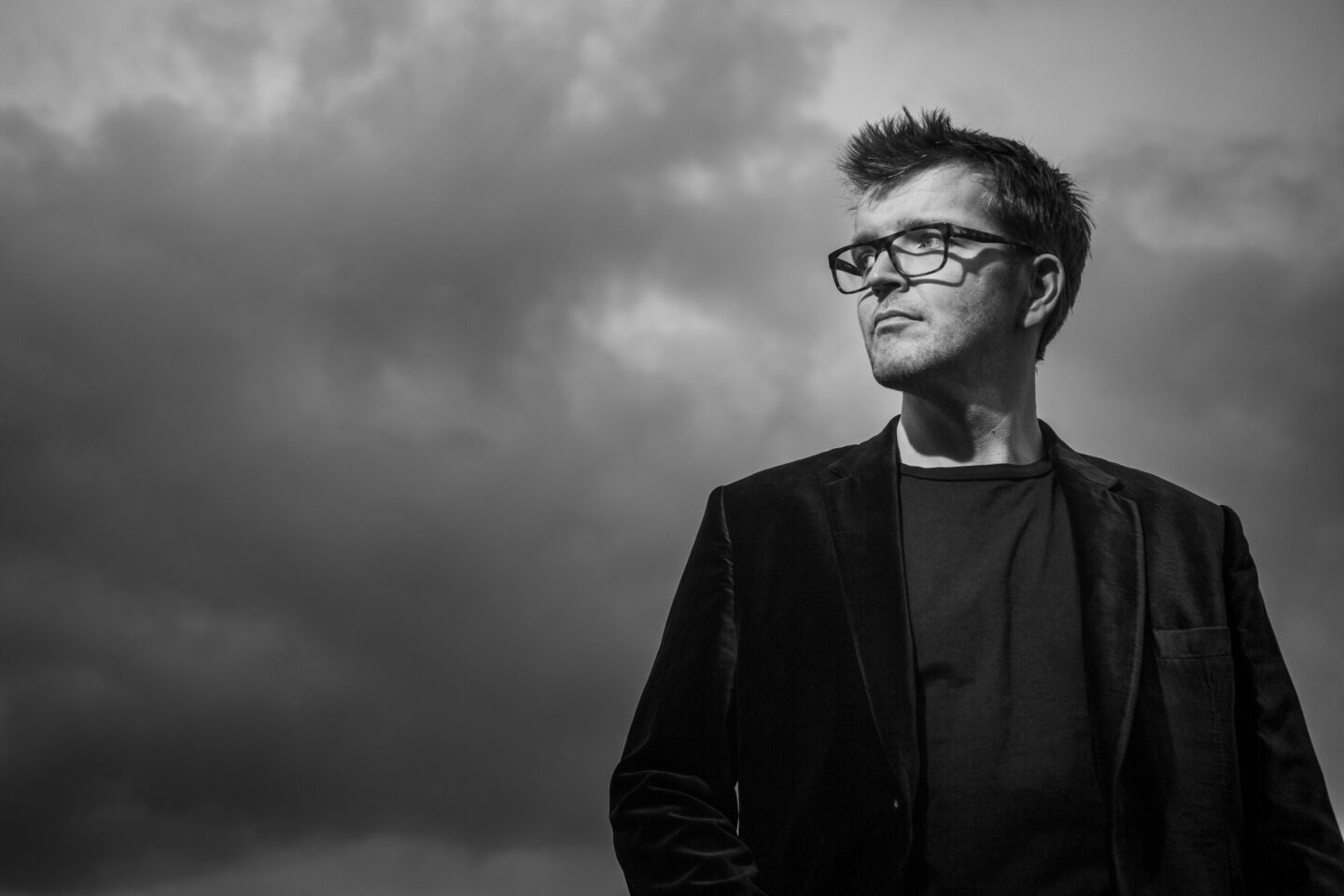“Here they come; four black figures, carrying instruments, and seat themselves facing the white squares under the downpour of light; rest the tips of their bows on the music stand; with a simultaneous movement lift them; lightly poise them, and, looking across at the player opposite, the first violin counts one, two, three.”
As the music commences, Virginia Woolf, without sensation or pretension, articulates the power that music has to transport our thoughts elsewhere. The extract above is from her short story The String Quartet. It is a piece of writing in which not much happens, aside from her perfectly elucidating how evocative listening to music can be, impressing colors onto emotions, animating memories and layering ideas. Fittingly, it was the string quartet, which she chose to illustrate this.
Flourish, spring, burgeon, burst!
This was also the source of inspiration for cellist Peter Gregson’s latest project. Quartets 3+4 follows Quartets 1+2 and completes ‘a quartet of quartets’ after five years. Within it, he has found a scenic meeting place between the contemporary and the classical, integrating electronics with the long-appreciated sonic beauty of the string quartet. Tracks are powerfully rich and textured, yet encompass elegance in their simplicity, and restraint.
“The Quartet has inspired artists from Haydn to Shostakovich to The Beatles. It’s an amazing sonic palette, endless possibilities and dynamic range, lyrical and factual. As a cellist myself, I felt I had something to add to how we, as composers, write for strings in the modern age.”
In the five years between the two parts, Gregson has led an accomplished and multi-faceted career, composing for film, television, projects like ‘World Sleep Day’ and releasing several of his own acclaimed albums.
With this he has become secure in the knowledge that success should be found within. “It’s obviously nice when people listen to it and have an opinion, or at least pause to think about it; a bad reaction for me is ‘that’s OK’ or ‘I don’t know’! I think true success is derived from ourselves.”
Translating concepts into music
On his previous album project Patina, Gregson asked how we can insert more humanity into art and music, including our intrinsic flaws, such as decay and imperfection. Walter Benjamin was asking similar questions back in 1936 and it is something which has only become more fascinating as we see the growth of digital streaming services – how is our endless capability to reproduce art shaping our definitions of authenticity and creativity?
The thinking which happens before the composing is an integral part of the process for Gregson, who uses his music to express relevant themes in societal discourse. Where language fails, music can sometimes offer an alternative and clarifying insight and it seems that this is an area in which Gregson thrives, embedding contemplative expressions of concepts into albums.
“There’s a lot of sitting and thinking, or walking and thinking, that is actively part of the composition process long before I write a note. And there is lots of prodding at keyboards or instruments to start realizing those ideas. Sometimes it’s fast, sometimes it’s slow. I am yet to find a correlation between speed and quality – every piece takes a different amount of time and energy.”
Working At Will
Quartets offered a chance for Gregson to work on something driven totally by his own wishes and at his own pace. Whilst that led to a five year wait for its completion, it was undoubtedly worth it. In addition, perhaps it is only in this way of working that he can express the true sense of his art. As art or music can be self-expression, conveying individuality and originality, it should be enacted with total volition and autonomy. For Gregson, it was the liberation of this process which was important.
“Even with a commissioned ‘art’ piece you’re usually given a theme, duration, performance date, instrumentation. That sort of thing. With my own work, all of those parameters are set by me. It’s very liberating, but you need to be pretty disciplined to create those structures. I think, we learn from our experiences. Music is no different. Since 2016/17, I’ve scored several films, written a few albums, a couple of ballets, commissioned works. So I think when I sat down to do these new Quartets, I was ready with new experiences.”
Composing For the Screen
Composing scores for films has been a consuming part of his career over the last few years. Gregson worked with people such as Alan Rickman on “A Little Chaos” and Roger Mitchell on “Blackbird” and it is not surprising that he references this as a defining experience. Writing for the screen offers a different challenge and the way in which he works on film projects varies. Sometimes, he is present from the early stages, and on other projects, he is brought in towards the end of the process.
“Music can react or provoke. Often with film scores, we are brought on at the end to score the picture, but other times, as is the case with a film I’m just finishing, I was brought on at the beginning to help shape the narrative. Both are valid, but starting early really allows the composer the chance to put their fingerprint on the score.”
Music is an essential aspect of any film, however the film can also be an integral aspect of the music. There are some tracks that become totally intertwined with films By being a part of a film project, it gains a new dimension and for Gregson it becomes more salient in the real world. “I don’t like sitting in my room, writing music for myself. I love music to be useful, to be heard, to live a life in the real world!”
Quartets: 1-4 is out now via Deutsche Grammophon.
